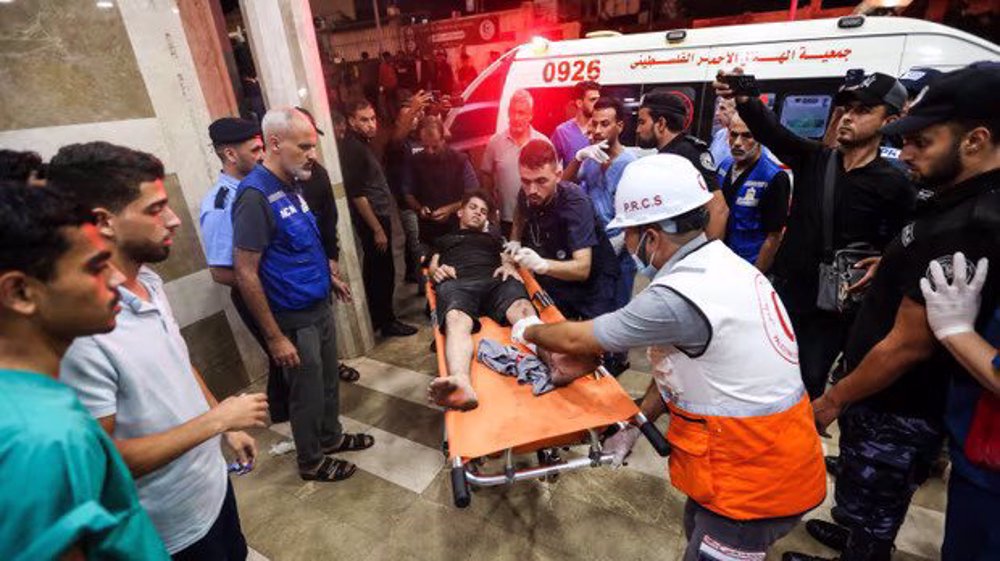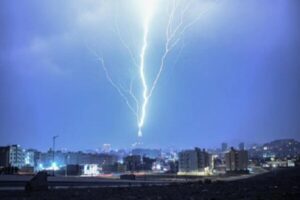White House national security spokesman John Kirby says this is not the time for a ceasefire between Israel and the Palestinian resistance movement Hamas, as the US has voiced its unequivocal support for the ongoing Israel aggression against the besieged Gaza Strip.
Kirby told CNN in a recent interview that Israel still had “work to do to go after Hamas leadership.”
“We don’t believe that this is the time for a ceasefire,” he said. “Israel has a right to defend themselves. They still have work to do to go after Hamas leadership.”
The remarks come as US President Joe Biden has unequivocally defended the Israeli regime’s ongoing genocide in the coastal Gaza Strip. Biden has stressed that Washington would provide the embattled regime with everything it needed to “defend itself”.
The US president promised to ask Congress for an unprecedented military aid package for Israel to assist its ongoing war on Gaza. Reports indicated that Biden was considering a supplemental request of about $10 billion for Israel.
It is feared that Biden’s unflinching backing of Israeli aggression against Palestinians in the besieged Gaza Strip could give the Tel Aviv regime the green light to commit mass atrocities or even genocide against the people of Palestine.
Reportedly Biden, who visited Israel on Wednesday amid an intensified Israeli campaign of airstrikes on Gaza, has now told Israeli Prime Minister Benjamin Netanyahu that Washington is fully in support of Tel Aviv’s plan to launch a ground invasion of the besieged Gaza Strip.
Elsewhere, Kirby, however, echoed the most recent comments from Biden, that any discussions of a ceasefire could only take place if Hamas freed all its hostages in the besieged Palestinian enclave. This marks the first time the US president has suggested that Washington will be willing to discuss a ceasefire between Israel and Hamas.
“We should have those hostages released and then we can talk,” Biden said on Monday when asked if he would support a “hostages-for-ceasefire” deal.
The United States on Sunday submitted a draft for a UN Security Council resolution on Israel’s onslaught in Gaza without any mention of a ceasefire in it.
On October 17, the UN Security Council did not adopt the Russia-drafted resolution on the Israeli-Palestinian conflict, as only five countries voted in favor. The draft resolution called for an immediate ceasefire and also blamed the United States for the unfolding situation in the Middle East.
UN Human Rights Chief called for a broad humanitarian ceasefire in Gaza
Meanwhile, UN rights chief Volker Turk has called for an ‘immediate humanitarian ceasefire’ in Gaza amid a refusal by the US to consider the issue.
The rights chief called for an immediate ceasefire in Gaza as its residents face ferocious and indiscriminate Israeli bombardments
“The first step must be an immediate humanitarian ceasefire, saving the lives of civilians through the delivery of prompt and effective humanitarian aid,” rights chief Volker Turk said in a statement.
“This violence will never end unless leaders stand up and make the brave and humane choices that are required by fundamental humanity,” Turk said.
Israel has already cut off supplies of water, electricity, fuel and food for Gaza residents.
“Far too many civilian lives, many of them children, have already been lost as a consequence of these hostilities,” Turk said.
“And, unless something changes, coming days will see more civilians on the brink of death from continuing bombardment.”
The humanitarian situation in Gaza, already strangled by 16 years of blockade, is now verging on catastrophe due to a lack of water, power, sanitation, essential medicine, food, and other basic necessities, Türk said.
Reports of overcrowding and the spread of diseases are deeply worrying, even more so when hospitals are damaged and destroyed, there is a worsening shortage of medicines, and movement is heavily restricted.
Concern about the plight of people in Gaza intensified. The director of the UN Agency for Palestinian Refugees (UNRWA) in Gaza, Thomas White, said shortages of shelter, food and drinking water in the south had forced some residents to return to their homes in the north.
Israel delivered sweeping evacuation orders for almost half of Gaza’s 2.3 million people on 13 October. The UN estimates that almost two-thirds of Gaza’s population has been displaced over the last two weeks.
United Nations agencies called “on our knees” on Tuesday for emergency aid to be allowed unimpeded into Gaza, saying more than 20 times current deliveries were needed to support its Palestinian population after two weeks of Israeli bombardment.
The World Health Organization, in the latest of increasingly desperate UN appeals, called for “an immediate humanitarian ceasefire” to allow safe deliveries of aid.
This comes as the Israeli occupation continues its brutal aggression against the Gaza Strip, targeting civilian homes, hospitals, and places of worship and causing thousands of casualties amid a complete, stifling siege on the Strip.
More than 700 Palestinians were killed overnight by Israeli air strikes, Gaza’s health ministry said on Tuesday.
Israel waged the war on Gaza on October 7 after the Palestinian resistance group Hamas launched the surprise Operation al-Aqsa Storm against the occupying entity.
The Tel Aviv regime has killed over 5,700 Palestinians, including 2,360 children, and injured 16,200.
It has also blocked water, food and electricity to Gaza, plunging the coastal sliver into a humanitarian crisis.




